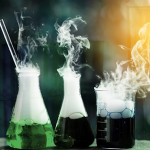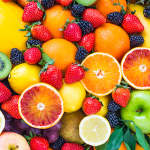Our society is woefully illiterate on scientific matters. Yet instead of taking the opportunity to educate customers about the benefits of food science, some companies have chosen to cash in on public ignorance.
Chemophobia
Several years ago, a survey of professional toxicologists revealed that 79% of them believed that the Environmental Working Group and two other organizations overstate the health risks of chemicals. That's why EWG is beloved by activists but detested by scientists.
Spring is just around the corner, and with it comes another growing season. Eating a diet rich in fruits and vegetables can help lower calorie intake; reduce risks for heart disease, obesity and Type 2 diabetes; and protect against certain cancers.
With all these benefits, why do some consumers choose to avoid produce? Approximately three-quarters of people in the U.S. don’t eat enough fruits and vegetables, according to the 2015 Dietary Guidelines for Americans.
From telecommunications and transportation to healthcare and entertainment, cutting-edge technology serves society well. But not when it comes to food. Oh no. We don't want technology anywhere near that. Neanderthal know-how is perfectly fine, thanks. What's behind that bizarre thinking?
Anyone who searches long enough can find that pretty much everything has been linked to cancer. Bacon. Cell phones. Wi-Fi. Even looking at our video correspondent, Ana Dolaskie. At some point the insanity has to stop. Unfortunately, we have yet to reach that point.
There's a long history of ridiculous fearmongering -- centering on BPA, MSG, Alar, DDT to name a few -- by environmental activists masquerading as health experts. Today, the whipping boy that takes the brunt of the unfounded chemophobic assault on science is the herbicide glyphosate.
The language of science has been hijacked. Those who are looking to make a quick buck (or in the case of the organic industry, 43 billion bucks) have no qualms about twisting the definition of highly precise scientific terminology to suit their own profit-driven agendas. Here's a brief glossary of the some of the most commonly misused scientific terms. (Note: the health food and fad diet industries are among the biggest abusers.)
The Hollywood actress's business enterprise, called The Honest Company, is anything but. Instead of selling you snake oil detergent, those honorable folks are peddling "sneak oil" detergent. And they've gotten away with it to the tune of $1.7 billion, every dollar of which they've extracted from suckers.
Though it may seem like it is recent, chemophobia has been building up for decades. Generations ago activists were using the language of scientists - possible, known, etc. - against science.
4-MEI is the reason not to avoid a Starbucks latte - 400 calories is.
The Environmental Working Group is at it again. A "new" chemical that is found in nail polish is all of a sudden going to screw up your daughter's sexual development. Yes, another hormone disruptor. This one is even more ridiculous than usual. Apparently, they did meet their scares metrics for the year and came up with this nonsense.
Despite the old adage about what pots call kettles, we would be remiss in our duties if we did not point out the arrogance of the title in a new piece about sunscreen in Time: This Is the Only Sunscreen Article You Need to Read.
ACSH s Dr. Josh Bloom says, When I start calling others arrogant, it is not unfair to wonder if I have clinched first place in the Hypocrite of the Year award. But in this case, it s not as bad as it seems. If Time is making such a grandiose claim, one would hope that the information





